Kaïssa Sylla’s Experiences Growing Up in Guinea Provide Career Inspiration
Kaïssa Sylla's experiences growing up in Guinea provide career inspiration
While the COVID-19 pandemic altered professional and personal lives for nearly everyone, people who work in health care, medical research and academic medicine have front-row seats. They have been called upon to adapt quickly to changing situations and community needs, while balancing the same uncertainties faced by the rest of society.
University of Wisconsin School of Medicine and Public Health (SMPH) leaders appreciate the heroic efforts of its faculty and staff who are dedicated to education, scientific investigation, patient care, public health and health equity. Their efforts extend throughout Dane County, the state and the nation.
Quarterly asked a sampling of SMPH faculty members to share their experiences related to the novel coronavirus and its ramifications on individuals, families and communities. As you read, think about this question: What would you do differently if you knew the pandemic would last this long?
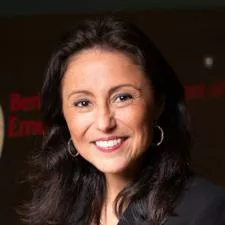
Hamedani is founding chair of the BerbeeWalsh Department of Emergency Medicine at the School of Medicine and Public Health.
How did the pandemic change your roles and responsibilities?
It necessitated a more cohesive and holistic approach to the clinical services we collectively provide. We had to make sure our faculty members were doing okay but also ask them to expand their scope.
What did you do in response to the pandemic?
I was asked to chair the State Disaster Medical Advisory Committee, sanctioned by the Wisconsin Department of Health Services (DHS) to provide advice related to medical ethics and recommend policy for equitable and fair delivery of medical services. It was an honor to lead this group. Even when they disagreed, the members truly cared about advancing the best interests of Wisconsin residents.
What’s one experience from the pandemic that stands out to you?
In a crisis, it is important to manage the emotions and storyline around the situation. You need to project confidence in a favorable future and ensure that serious work is getting done, but also build community so people feel they are in it together. In meetings I led, I made sure to ask an unexpected personal question that would result in some laughter. It’s hard to be too upset with someone, take things too personally or not care about another person’s viewpoint when you’ve laughed together. In a diverse stakeholder committee, that’s especially important.
What is the most important thing the pandemic taught you?
Public health infrastructure and health literacy are areas in which we should invest so communication in times of public health crises can be more effective. We should learn from this experience and invest in better systems for the future.
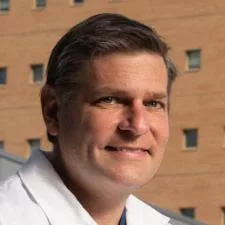
Hartman is associate professor in the Department of Anesthesiology at the School of Medicine and Public Health and an anesthesiologist for UW Health.
How did the pandemic change your roles and responsibilities?
When COVID-19 hit, I felt that I might be able to help run clinical trials. This was the only way to bring cutting-edge treatments to our patients and, in turn, the world. We investigated therapies—including convalescent plasma and monoclonal antibodies—that could immediately give hospitalized people relief. Among other trials, we tested the safety and efficacy of COVID-19 vaccines. Running these trials has been the privilege of a lifetime.
How were you responsible for communicating about the pandemic?
I felt the need to talk to the people of Wisconsin and let them know what we were doing and why. I tried to educate people on how to be safe and the different therapies and vaccines that became available. While I never had any intention of being a television doctor, it was the most effective way to talk to people and reassure them.
What do you recall most about your work during the pandemic?
I found an incredible group of people in the Office of Clinical Research. They “ran into the fire” and always asked if there was anything more they could do to help. I also truly appreciate the people in the local and national media who told the story as it was evolving.
What is the most important thing that the pandemic taught you?
The biggest takeaway has been the goodness of people. From the professionals in the hospital to the researchers, to the volunteers, to the hundreds of children and adults who bravely became part of our vaccine trials. I will always be grateful for them and hope to live up to their example of selflessness.
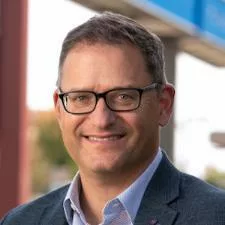
Newcomer is senior associate dean for clinical affairs at the School of Medicine and Public Health, the Grossman Chair in Healthcare Leadership, and chief clinical officer for UW Health.
How did the pandemic change your roles and responsibilities?
It was critical to coordinate and align diverse clinician leadership voices to create a unified approach for our organization. We also had to communicate effectively and regularly.
How were you responsible for communicating about the pandemic?
We worked to be a resource for the media. Also, it was vital that we provide resources to health system staff, answer questions and provide regular updates. I started a weekly clinician update, which I continue to this day with a brief operational and COVID-19 update to 2,200 physicians and advanced practice providers.
What’s one memory from the pandemic that stands out to you?
I remember the incredible stress of the unknown early in the pandemic when our epidemiologists were predicting that we would not have enough beds and ventilators for our patients. I remember the kindness of our nurses as they provided comfort and companionship to patients who were sick with COVID-19 and isolated from their loved ones. I remember the happiness and relief related to the rapid vaccine development and then the complexity of an equitable rollout of those vaccines.
What is the most important thing the pandemic taught you?
I think it taught me more about flexibility and dealing with ambiguity than 20 years of working in a complex organization. When things are ambiguous, communication is key to successfully enacting changes and decisions. In the face of ambiguity, we are learning to build spaces with flexibility to serve multiple purposes.

Nugent is director of clinical trials development and accreditation at the School of Medicine and Public Health and chief clinical research officer for UW Health.
How did the pandemic change your roles and responsibilities?
We had to pivot to all things COVID-19 because we realized the only treatments and prevention for the novel coronavirus were going to come from clinical trials. Two weeks after we closed non-essential, on-site work at the SMPH, the Office of Clinical Research was opening the first COVID-19 treatment trial at University Hospital. We had to work much faster than we ever had, and most staff were working seven days per week for the first four months. Everyone pitched in, doing whatever tasks needed to be done to get patients enrolled and their treatment started. We also became part of a national consortium related to COVID-19 clinical trials.
How were you responsible for communicating about the pandemic?
I was called upon to give updates to the clinical community about our clinical trials to ensure them that they could quickly refer patients. We reached out to the hardest hit communities about clinical trials. We answered questions and combated misinformation.
What’s one experience from the pandemic that stands out to you?
I think everyone felt very unsure and scared at the beginning, but when we started to have success with clinical trials preventing death and long hospitalizations, I remember seeing a change in everyone’s faces. We had contributed to saving lives! Getting selected for multiple COVID-19 vaccine trials validated our academic medical center at the SMPH and UW Health as a leading research center.
How did the pandemic change your perspective on the work you do?
It reminded me of how much a group of mission-driven people can accomplish.
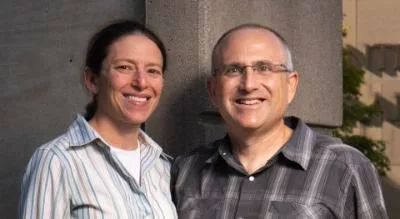
Dave and Shelby O’Connor are professors in the Department of Pathology and Laboratory Medicine at the School of Medicine and Public Health.
How did the pandemic change your roles and responsibilities?
DO: Due to our experience with the Zika virus, we started sharing in real time the important lessons we learned, galvanizing collaboration between basic science researchers and those working with animal models. We then pivoted to improve access to testing, especially in schools, and to track the spread of viral variants throughout the state.
SO: It taught me how to engage with others to solve health-related challenges in our local community. In 2020, we developed a mobile saliva-testing program to collect samples and perform the tests outdoors and on site. Once rapid antigen testing became available, we then designed a program to train local K-12 school nurses and staff on how to perform them. After the Wisconsin DHS implemented widespread K-12 testing, we pivoted to the development of an air-surveillance program to capture viruses from the air in several locations. Now, we are continuing to use air surveillance in novel ways to learn about the spread of respiratory viruses in different settings.
What did you do in response to the pandemic?
DO: Shelby and I were participants in the AstraZeneca phase 3 vaccine study. We also participate in World Health Organization, Centers for Disease Control and Prevention (CDC) and National Institutes of Health (NIH) groups that study different aspects of the pandemic. Locally, we work very closely with Public Health Madison and Dane County and local schools.
SO: We have been working particularly closely with the local K-12 schools and other community entities to implement different testing and surveillance programs.
What’s one memory from the pandemic that stands out to you?
DO: The teamwork that our group showed when setting up outdoor testing in the summer of 2020 was memorable. The cognitive dissonance of working with a SARS virus behind a bike shed, in 2020, was bonkers to me.
SO: I remember sitting outside and pipetting liquids while sweat was dripping in my eyes. I never thought I would be testing for an infectious pathogen outside a bike shed. That was pretty nuts.
What is the most important thing the pandemic taught you?
DO: It taught me the fragility of systems that we take for granted. People are behind the systems that govern our daily lives, and when those people are stressed, the systems falter. Given the frequency of worrisome emerging and re-emerging viral diseases, figuring out how to fortify resilience in these systems is going to be vitally important.
SO: I have learned that there are some wonderful, kind and generous people in our community. These people continued to give their all, even when the world felt like a dark cloud. Moving forward, I think our community needs to have that spirit of collective outreach because we will need to embrace it again when the next crisis comes our way.
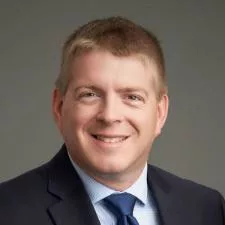
Pothof is associate professor at the BerbeeWalsh Department of Emergency Medicine at the School of Medicine and Public Health and chief quality officer for UW Health.
How did the pandemic change your roles and responsibilities?
I was part of a team asked to assess our pandemic readiness and determine what we needed to do to stay safe while continuing to provide remarkable care to our patients at UW Health. Most of 2020 consisted of rotating through the Hospital Incident Command Center as one of the medical branch officers. We’d review the metrics on pandemic trends to determine how we needed to respond. We worked with UW-Madison to manufacture our own hand sanitizer and face shields when we knew the supply chain would leave us short. Every day was filled with issues that needed to be solved with the speed and flexibility we were not accustomed to, but time after time, everyone at UW Health and the SMPH stepped up and exceeded everyone’s expectations.
What did you do in response to the pandemic?
In addition to my work within UW Health, I served on the Waunakee School District’s Medical Advisory Committee to help create a safe environment for children. I also was one of the first people in the United States to participate in the AstraZeneca phase 3 vaccine trial. Our research teams had worked tirelessly to secure UW Health as an enrollment site for that clinical trial.
How were you responsible for communicating about the pandemic?
Early on, many of us at the SMPH and UW Health felt strongly that our role in the pandemic included informing and educating our community and beyond about how to keep themselves and their families safe. This began small with a handful of media interviews, but it grew into more than 3,000 media stories with more than 1.5 billion views.
What’s one memory that stands out to you?
I’ll never forget the Sunday morning when our team met and made the incredibly difficult decision to postpone all non-emergent procedures at UW Health. This had never been done before, and despite the enormous financial cost to the organization, we made that decision because it was necessary to keep our staff and patients safe in that uncertain time.
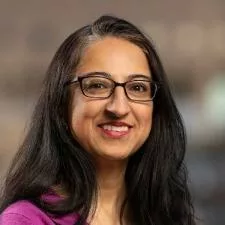
Safdar is associate dean for clinical trials (since September 2021) at the School of Medicine and Public Health, research director for the UW Clinical Trials Institute at the School of Medicine and Public Health and UW Health, and medical director of infection control (until September 2021) for UW Health.
How did the pandemic change your roles and responsibilities?
COVID-19 took priority, and everything else I do took a back seat. Almost every waking moment was spent developing, implementing and communicating COVID-19 protocols to our health care workforce.
What did you do in response to the pandemic?
I was a member of the State Disaster Medical Advisory Committee. I am a vaccination domain lead for the NIH’s National COVID Cohort Collaborative. I also took on a bigger role in communicating to the public the importance of COVID-19 vaccinations and other preventive measures, and I served as a special advisor to the UW-Madison chancellor’s COVID-19 Response Team.
What’s one memory from the pandemic that stands out to you?
When we saw the state’s first COVID-19 patient, it was gratifying to see that our infectious disease protocols worked well — especially because the early days were fraught with having to make decisions in the face of the most ambiguity [about the novel coronavirus] that I’ve ever experienced.
How did the pandemic change your perspective?
I felt a very strong recommitment to my work in infection control and academia.
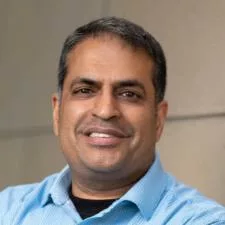
Sethi is professor in the Department of Population Health Sciences at the School of Medicine and Public Health, faculty director for the Master of Public Health Program at the School of Medicine and Public Health, and scientist for the Survey of the Health of Wisconsin (SHOW), UW–Madison.
How did the pandemic change your roles and responsibilities?
When the pandemic hit, I was responsible for shifting the Master of Public Health Program curriculum to a virtual format. I helped colleagues and students transition to online teaching and learning. I also helped restructure the new Public Health Residency Program into a remote program.
The focus on my research shifted to COVID-19, particularly on questions that could help with the pandemic response. In the SHOW, we carried out studies to estimate SARS-CoV-2 seroprevalence longitudinally as the virus spread in Wisconsin and to understand the impact of the pandemic on social determinants of health. I also worked with a team at the UW Carbone Cancer Center to help understand the impact of COVID-19 on the health and medical care of cancer patients in Wisconsin.
What did you do in response to the pandemic?
As a member of the UW Health COVID-19 modeling team, I helped project the number of cases, hospital and ICU bed needs, and deaths in Wisconsin. Our modeling helped inform resource allocation and utilization, as well as staffing needs.
I served on several committees as an advisor to UW–Madison’s University Health Services; this work related to outbreak response testing, quarantine protocols and evidence-based campus policies.
Some organizations and businesses reached out to me to help them develop testing and risk-mitigation policies and protocols, and to provide vaccine education for their employees.
How were you responsible for communicating about the pandemic?
Relative to before the pandemic, my time committed to outreach increased tremendously. I engaged with media outlets, gave talks and served on panels about COVID-19, and fielded questions from community members. When I could, I offered clarity about emerging scientific knowledge and new public health recommendations. I became a go-to expert to help counteract misinformation about the virus and vaccines.
What’s one experience from the pandemic that stands out to you?
One specific interview I did early in the pandemic has stayed with me. I was asked to comment on a study that someone had started to look at whether measles, mumps and rubella vaccine could protect against COVID-19. At the time, the scientific question being asked had some merit, but after doing some internet sleuthing, I learned that the study protocol was ill-conceived. My work led to the stoppage of an unethical study. I felt proud to contribute to that.
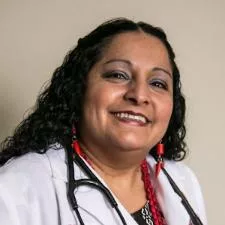
Tellez-Giron is associate professor in the Department of Family Medicine and Community Health at the School of Medicine and Public Health, and co-chair of the Dane County Latino Health Council.
How did the pandemic change your roles and responsibilities?
Primary care physicians had to rapidly adjust. Some of us had to go help at the hospitals. We needed to work more efficiently to protect ourselves and the people we serve. Also, at the community level, my work tripled right away.
What did you do in response to the pandemic?
The Dane County Latino Health Council’s mission is to support the well-being of the Latinx community. In my leadership role there, I was partially responsible for organizing the full COVID-19 response campaign.
In this response, we advocated for testing and vaccine sites that are culturally and linguistically appropriate. We prioritized communication and education individually, in groups and in the media. For instance, we have a health education radio program — the only all-Spanish radio station in Dane County — and this proved to be the best way to get vital information to our community when the pandemic hit. I also assisted in securing financial support for families with undocumented individuals who did not qualify for other financial programs.
What are some key takeaways from the pandemic that stand out to you?
It has been difficult to see how our Latinx community has been impacted the hardest. People have been affected not only physically and mentally but financially, and it will take the community many years to recover.
However, it was amazing to see how well-organized, collaborative and fast we were within our community. I am extremely grateful for the Latino Health Council, particularly my co-chair Shiva Bidar-Sielaff, as well as the leaders of other grassroots Latinx community organizations.
How did it change your perspective on the work you do?
It reinforced what I already knew and what my parents taught me: that we are here to serve, support and respect each other. Collaboration is crucial. We are all in this together!
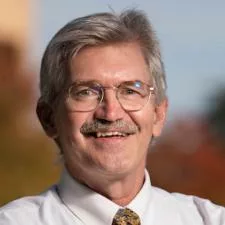
Temte is professor in the Department of Family Medicine and Community Health and associate dean for public health and community engagement at the School of Medicine and Public Health.
How did the pandemic change your roles and responsibilities?
Because I had training in pandemic response, respiratory virus surveillance, epidemiology and vaccine policy, I found myself in a weird comfort zone. My time is split between the SMPH Dean’s Office and the Department of Family Medicine and Community Health. As my research is directed entirely at respiratory viruses, my team anticipated the pandemic’s arrival and pre-emptively adapted our protocols, allowing us to continue our studies.
What did you do in response to the pandemic?
Initially, I was involved with the UW-Madison Campus “Smart Restart” efforts for safe reopening of campus for the fall 2020 semester. My research team also created and operated a faculty and staff SARS-CoV-2 surveillance system to help inform campus policy.
I was recruited to serve on the State Disaster Medical Advisory Committee and helped develop the pandemic response for Wisconsin. I co-chaired Wisconsin’s COVID-19 Vaccine Allocation Subcommittee, which developed approaches to vaccine distribution once it became available.
I also served as the American Academy of Family Physicians’ liaison to the CDC’s COVID-19 Vaccine Work Group, which was charged with developing vaccine policy options for the U.S. Advisory Committee on Immunization Practices.
What’s one memory from the pandemic that stands out to you?
My family and I took a vacation very early in the pandemic. While away, I received a voicemail from a colleague who was having significant respiratory symptoms and could not get anyone to approve a COVID-19 test. The person’s voice was desperate and haunting. We arrived back in Wisconsin in mid-March 2020 to a vastly different world than it had been when we left Madison.
How did the pandemic change your perspective on the work you do?
The pandemic underscored the tremendous undertaking of public health and medical science and, sadly, reinforced the limits of science. One can have incredible tools: vaccines, antivirals, testing and more. Yet, these measures fail in the face of misinformation. Good science relies on effective communication and good science literacy.
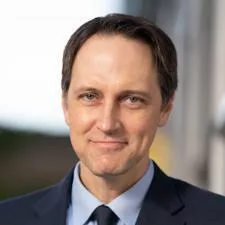
Westergaard is associate professor in the Department of Medicine at the School of Medicine and Public Health, and chief medical officer and state epidemiologist for communicable diseases for the Wisconsin Department of Health Services (DHS).
How did the pandemic change your roles and responsibilities?
I joined the Wisconsin DHS as a state epidemiologist in August 2019 and was still learning the ropes in my new role when COVID-19 changed everyone’s role in public health. I became the subject matter expert for state policymakers. I was responsible for public communications on pandemic data and scientific developments, and I explained public health guidance. I did this through the media and directly, often alongside Governor Tony Evers and other state leaders.
What did you do in response to the pandemic?
State epidemiologists play an important liaison role between federal agencies, such as the CDC and U.S. Food and Drug Administration, and the local and tribal health departments where COVID-19 response activities are ultimately implemented. Together, we grappled with challenging questions about how to interpret or adapt CDC guidance locally, and how to work efficiently and equitably to allocate resources like vaccines and therapeutics.
What’s one experience from the pandemic that stands out to you?
The Wisconsin DHS integrated into the State Emergency Operations Center, where I worked to foresee challenges six or more months down the road with a diverse team of “big picture” thinkers from numerous state agencies. We worked long hours under stressful conditions and forged friendships that I will always value.
What is the most important thing the pandemic taught you?
Trust is the resource that is most crucial for public health professionals’ ability to prevent disease and protect our communities. While trust in science and in civic leaders has been in short supply in some areas, I believe that trust can be nurtured and restored when we lead with empathy, honesty and humility.